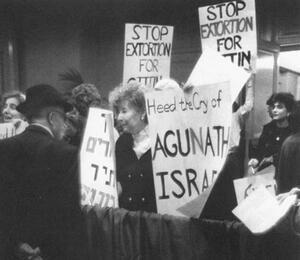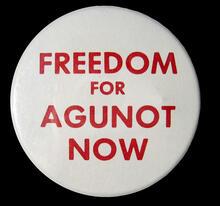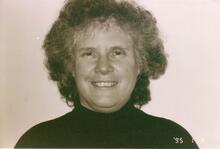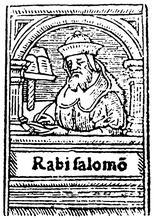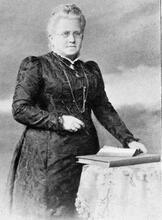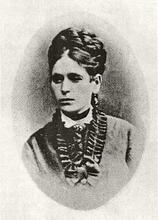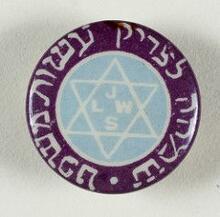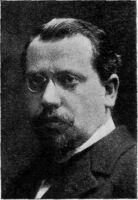International Coalition for Agunah Rights (ICAR)
An agunah (plural: agunot) is a woman “chained” to a husband either unwilling or unable to grant her a Jewish divorce. In 1992, a number of organizations dealing with this problem in different countries decided to form an international coalition, hoping to provide a more systemic solution, and representatives from Canada, United States, and Israel formed ICAR. From the first, the coalition had a dual focus of education and activism; while it initiated some of its own activities, it also supported local actions by the member organizations. Since 1997, the international aspect of the coalition has decreased and ICAR itself, although it still includes member organizations from other countries, has become a primarily Israel-focused coalition.
The Problem of the Agunah
An agunah (plural: agunot) is a woman “chained” to a husband either unwilling or unable to grant her a Jewish divorce. Because halakhah (Jewish law) requires that the get (the divorce document) be granted by the husband, an agunah cannot remarry, and any subsequent children she bears are considered mamzerim (illegitimate children) who can never marry legitimate Jews. Legal loopholes exist to allow non-divorced husbands to remarry; none exist to help wives. The plight of agunot has become an increasing problem in contemporary times, with Jewish communities unable to pressure recalcitrant husbands into granting divorces to their wives. In addition, in the State of Israel, both marriage and divorce fall within the realm of religious law; there is no civil alternative. Some husbands have taken advantage of the situation, either blackmailing their wives before granting a divorce or leaving their wives to suffer while they themselves move on.
Organizing Internationally to Help
Organizations exist in various countries to help individual women caught in this situation. Activists recognized the additional need to address the source of the problem, and to implement a solution that would prevent it from occurring at all. They realized that this solution must be international, because the domain of Jewish law does not coincide with national borders. Norma Joseph (Canada), Alice Shalvi (Israel), and Rivka Haut (U.S.) met to discuss the problem, and on October 26, 1992, founded The International Coalition for Agunah Rights (ICAR) together with representatives from many women's groups.
From the beginning the coalition's goal has been twofold: educational and activist. Educational activities include conferences, vigils, press releases, interviews, and raising awareness about particular cases. An international ICAR conference, held in 1994 in Jerusalem, was attended by then Ashkenazi Chief Rabbi Israel Lau but brought little results. Annual vigils are held in various countries to commemorate the agunot victims. The first United States vigil was held in 1995. In Canada, an annual vigil is held on the Fast of Esther (the day before Purim). In Israel, vigils or demonstrations are held around the time of Rosh Hashanah (the New Year), on International Women’s Day (March 8), and on the Fast of Esther. Several vigils have also been held in England. ICAR held sessions at the General Assembly of Councils of Jewish Federations of North America for three years (1993, 1994 and 1995), to increase awareness of the problem and to exhort members of the federations to pressure rabbinical authorities to find a solution. The Canadian group also held an educational retreat and produced a documentary film, “Untying the Bonds... Jewish Divorce,” which was distributed together with a study guide. An additional documentary (Mekudeshet [Sentenced to Marriage], by Anat Zuria) presented the problem even more vividly and aroused greater awareness of the problem. The film, which follows the stories of three agunot and the female advocates who represent them, won the Best Documentary Award at the 2004 Jerusalem Film Festival (July 18, 2004).
ICAR’s activism includes attempts to convince the rabbinical authorities to find solutions to the problem. Their halakhic recommendations are prenuptial agreements that address the issue of divorce, convincing recalcitrant husbands to grant a divorce, annulment of the marriage by rabbinic court, obligating the husband to grant the divorce, and conditional divorce that creates a document at an earlier time to be enacted if it becomes necessary. ICAR has met repeatedly with the chief rabbis of Israel. So far, no global solution has been reached. ICAR also campaigns for solutions that originate in the non-Jewish legal world. Canada, at the federal level, and New York, at the state level, have both enacted laws that make a civil divorce difficult if there are obstacles to a religious remarriage. This has helped, but not alleviated, the problem.
ICAR encompasses twenty-four organizations, both religious and secular, that are committed to solving the problem of agunot. Among them are Emunah, Hadassah Israel, the International Council of Jewish Women (ICJW), the Israel Women’s Network (IWN), Kolech – Religious Women’s Forum, Mavoi Satum, Na’amat, the National Council of Jewish Women, the Rackman Center for the Advancement of Women at Bar Ilan University, Women’s League for Conservative Judaism, and WIZO.
Decreasing International Activities
Since 1997, the international aspect of the coalition has decreased. The Canadian organizations, grouped as the “Canadian Coalition for Jewish Women for the Get,” continue their own regional-based activities as a coalition. Activism on this issue at the coalition level is dormant at the present time in the United States, although the individual organizations still continue their activities. ICAR itself, although it still includes member organizations from other countries, has become a primarily Israel-focused coalition.
An important addition to the Israeli group came with the establishment in 1999 of a Center for Women in Jewish Law at the Schechter Institute of Jewish Studies, which has published a number of case studies, indicating what solution could have been applied to ease the plight of the women concerned. In 2001, ICAR presented a formal request to the rabbinical court. Composed by attorney Susan Weiss, the request delineated ways in which the court could improve the divorce process and help women needing a get. An important development by one of the ICAR member organizations in Israel is the staffing of the legal aid center and hotline at Yad L’Isha by to’anot (female rabbinical court advocates). The to’anot are available to represent and defend women—and men—in divorce cases; in particular, they can defend agunot.
As of 2019, ICAR continues both education and activism in Israel. It maintains an informative website through which individuals can access resources; in the near future, it hopes to also include a number of prenuptial agreements that would specify conditions in the event of the breakup of the marriage, thus eliminating or reducing the possibility of the husband withholding a divorce. ICAR also continues to campaign for systemic solutions to the agunot problem, by taking part in Knesset committee discussions, contacting relevant government officials, and carrying out media campaigns. One of its successes was the Sanctions Law, passed in 2012, which declared rabbinic courts accountable for conducting hearings and imposing sanctions on recalcitrant husbands.
ICAR’s Prayer for agunot, written by Shelley Frier List:
Creator of heaven and earth. / May it be your will to free the captive wives of Israel / When love and sanctity have fled the home, / But their husbands bind them in the tatters of ketubot. / Remove the bitter burden from these agunot and / Soften the hearts of their misguided captors. / Liberate your faithful daughters from their anguish. / Enable them to establish new homes and raise up children in peace. / Grant wisdom to the judges of Israel. / Teach them to recognize oppression and rule against it. / Infuse our rabbis with courage to use their power for good alone. / Blessed are you, creator of heaven and earth, who frees the captives. / Baruch matir asurim.
Alter, Susan D. “The Anchored Woman—A Cry for Help.” Bat Kol (Fall 1987): 30–34.
Biale, Rachel. Women and Jewish Law: An Exploration of Women’s Issues in Halakhic Sources. New York: Schocken Books, 1984.
Breitowitz, Irving. Between Civil and Religious Law: The Plight of the Agunah in American Society. Westport, CT: Praeger Publishers, 1993.
The Center for Women in Jewish Law. Jewish Law Watch: The Agunah Dilemma 1-7. Jerusalem: Schechter Institute of Jewish Studies, 2000–2003.
Cwik, Marc S. “Bibliography Covering the Agunah Problem, Jewish Marriage, Jewish Divorce, and Related Issues.” Women in Judaism: A Multidisciplinary E-Journal 1, no. 2 (1998)).
Greenberg, Blu. “Jewish Divorce Law: If We Must Part Let’s Part as Equals.” In Carol Diament, ed. Jewish Marital Status. New Jersey: Jason Aronson, Inc, 1994.
Haut, Irwin. Divorce in Jewish Law and Life. New York: Sepher-Hermon Press, 1983.
“Important Development in the Fight Against Get Refusal.” New Israel Fund. March 20, 2014. https://www.nif.org/stories/social-and-economic-justice/important-development-in-the-fight-against-get-refusal/
The International Coalition For Agunah Rights. “About ICAR”. 2011. http://www.icar.org.il/about-icar.html
Weiss, Susan. “The Jailer Must Pay.” Jerusalem Report, January 24, 2005.

